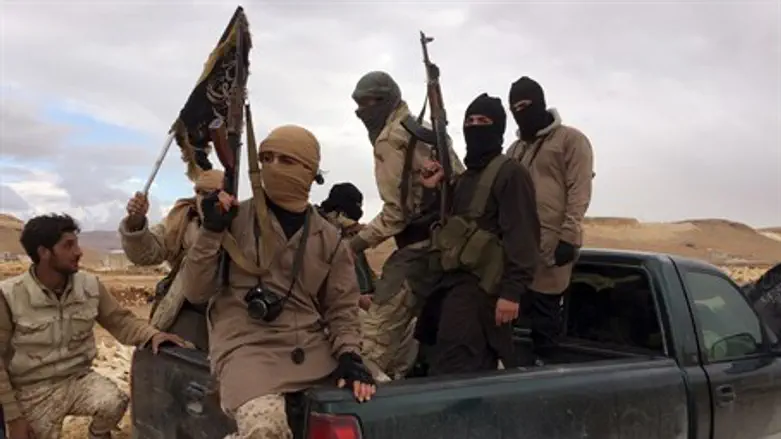
Three Spanish journalists taken hostage in Syria by an Al Qaeda-linked group returned on Sunday to Madrid where they were welcomed by overjoyed family members after nearly a year in captivity.
Antonio Pampliega, Jose Manuel Lopez and Angel Sastre were flown on a Spanish defense ministry jet from Turkey to Torrejon air base near Madrid where they were greeted by Deputy Prime Minister Soraya Saenz de Santamaria.
The three men smiled as they descended from the plane as officials held up umbrellas to shield them from driving rain, according to a video released by the government.
Pampliega kissed his sister Alejandra on the forehead and gave her a hug after she ran to greet him.
"Crying from joy falls short," she said on Twitter on Saturday when the news broke that the three experienced conflict zone reporters had been released and were in good health.
Pampliega's mother Maria del Mar Rodriguez Vega said she planned to cook her son's favorite dish to celebrate his return - spinach with bechamel sauce.
"It was wonderful when I spoke to him by telephone," she said in a statement released by the Spanish branch of media rights group Reporters Without Borders, known by its French acronym RSF.
"He had the same voice as always, from when he was a child, he repeatedly asked me to forgive me for what he made me go through."
"Collaboration of allies and friends"
The three journalists were kidnapped by armed men on July 13 while they travelling together in a small van in the northern Syrian city of Aleppo where they had been reporting on fighting for various Spanish media.
They were held by Al Qaeda's Syrian affiliate, the Nusra Front, government sources told AFP.
The trio appear to have been treated better than three other Spanish journalists who were released in March 2014 after being held for six months in Syria by the Islamic State (ISIS) group, Nusra's rival which has executed many of its hostages, the sources added.
The release was "possible thanks to the collaboration of allies and friends especially in the final phase from Turkey and Qatar," the government said Saturday, without giving further details.
After they disappeared, Spanish Foreign Minister Jose Manuel Garcia-Margallo said officials were working with members of the National Intelligence Center who were in Syria to try and secure their release.
"The government informed the families regularly, and with rigour and professionalism, of what was happening so this experience could be the least unpleasant as possible," David Rubio, a spokesman for Jose Manuel Lopez's family, told public radio.
"We are anxious to know how he has reacted to all of this physically and psychologically," he added.
Experienced journalists
Lopez, born in 1971, is a prize-winning photographer who contributed images to AFP from several war zones, including from the Syrian conflict up until 2013 and Iraq in 2014.
Pampliega, a freelance war correspondent born in 1982, contributed to AFP's text coverage of the civil war in Syria for a period up to 2013.
A passionate reporter who tended to focus on human interest stories, he also contributed to AFP's coverage in Iraq.
Sastre, 35, has worked in trouble spots around the world, including Syria, for Spanish television, radio and press.
RSF in 2015 ranked Syria as one of the most dangerous countries in the world for journalists along with Iraq.
It says 139 journalists died in Syria, where various armed factions have been battling President Bashar al-Assad's regime and each other since 2011.
In August 2014, Islamic State murdered US journalist James Foley, who was taken hostage in northern Syria in 2012. The following month, the group killed fellow US journalist Steven Sotloff.
In 2015, terrorists from the group beheaded Japanese war correspondent Kenji Goto. Last month a video emerged of another Japanese journalist, Jumpei Yasuda, apparently asking for Tokyo's help in securing his release.
AFP contributed to this report.